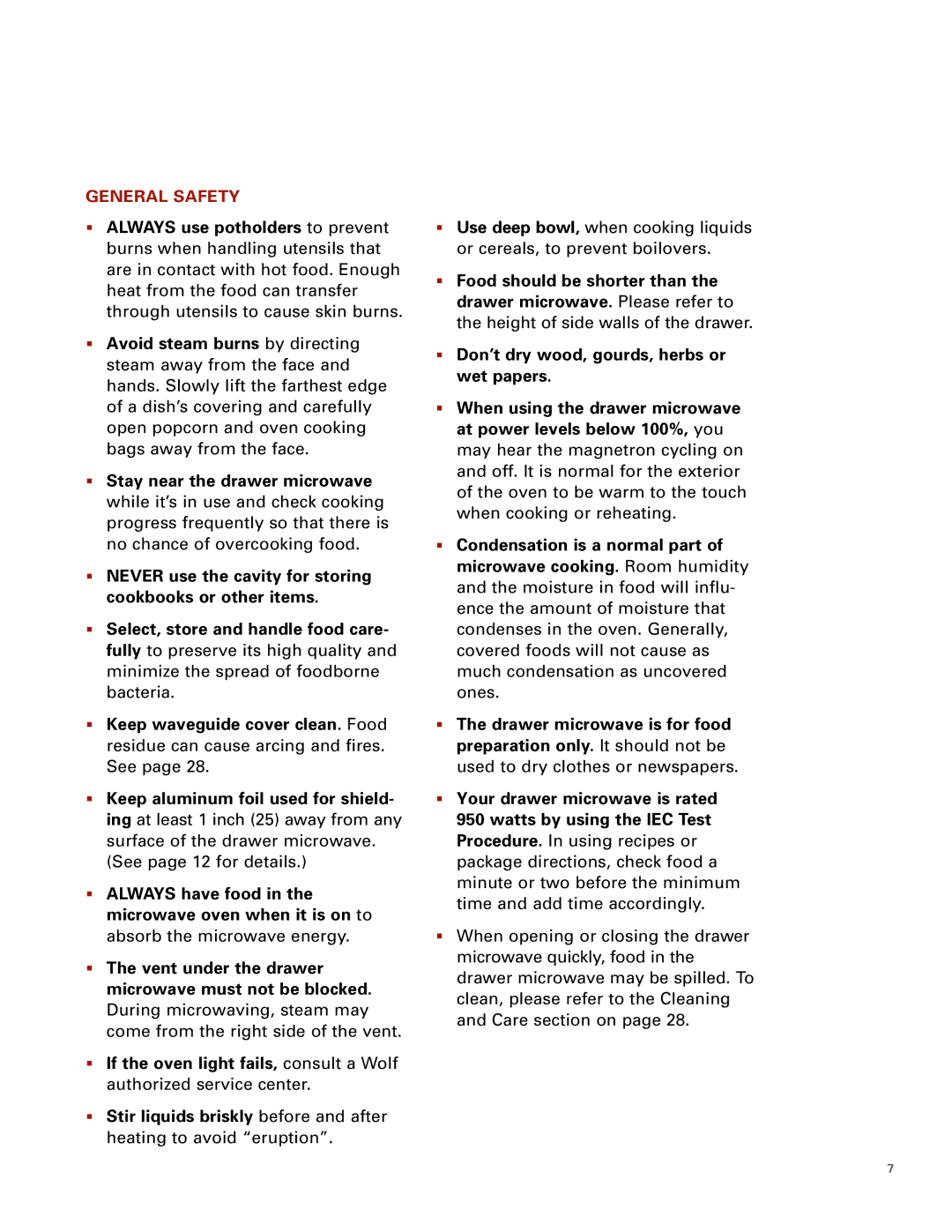
GENERAL SAFETY
ALWAYS use potholders to prevent burns when handling utensils that are in contact with hot food. Enough heat from the food can transfer through utensils to cause skin burns.
Avoid steam burns by directing steam away from the face and hands. Slowly lift the farthest edge of a dish’s covering and carefully open popcorn and oven cooking bags away from the face.
Stay near the drawer microwave
while it’s in use and check cooking progress frequently so that there is no chance of overcooking food.
NEVER use the cavity for storing cookbooks or other items.
Select, store and handle food care- fully to preserve its high quality and
minimize the spread of foodborne bacteria.
Keep waveguide cover clean. Food
residue can cause arcing and fires. See page 28.
Keep aluminum foil used for shield-
ing at least 1 inch (25) away from any surface of the drawer microwave. (See page 12 for details.)
ALWAYS have food in the microwave oven when it is on to
absorb the microwave energy.
The vent under the drawer microwave must not be blocked.
During microwaving, steam may come from the right side of the vent.
If the oven light fails, consult a Wolf authorized service center.
Stir liquids briskly before and after heating to avoid “eruption”.
Use deep bowl, when cooking liquids or cereals, to prevent boilovers.
Food should be shorter than the drawer microwave. Please refer to
the height of side walls of the drawer.
Don’t dry wood, gourds, herbs or wet papers.
When using the drawer microwave at power levels below 100%, you may hear the magnetron cycling on and off. It is normal for the exterior of the oven to be warm to the touch when cooking or reheating.
Condensation is a normal part of
microwave cooking. Room humidity and the moisture in food will influ- ence the amount of moisture that condenses in the oven. Generally, covered foods will not cause as much condensation as uncovered ones.
The drawer microwave is for food preparation only. It should not be
used to dry clothes or newspapers.
Your drawer microwave is rated 950 watts by using the IEC Test
Procedure. In using recipes or package directions, check food a minute or two before the minimum time and add time accordingly.
When opening or closing the drawer microwave quickly, food in the drawer microwave may be spilled. To clean, please refer to the Cleaning and Care section on page 28.
7
